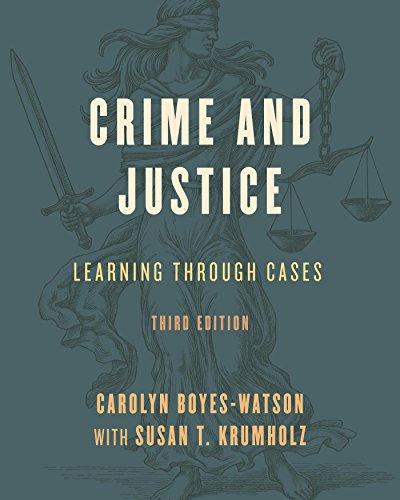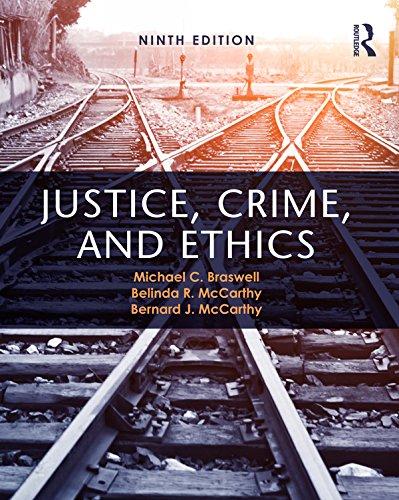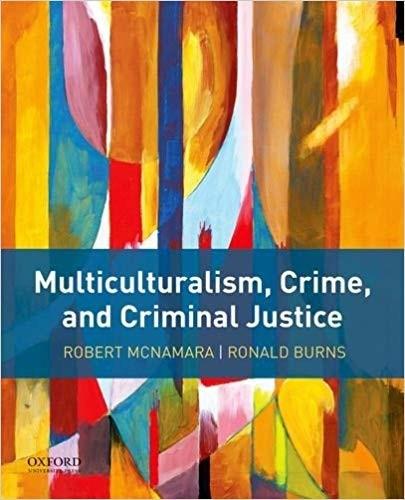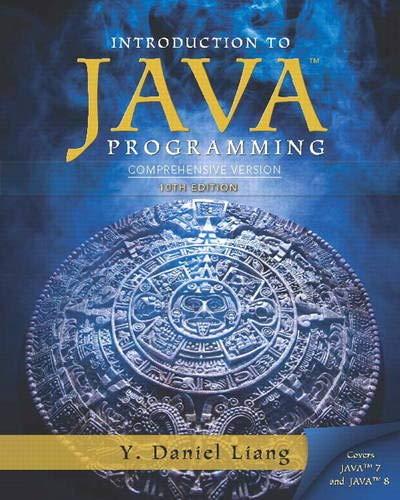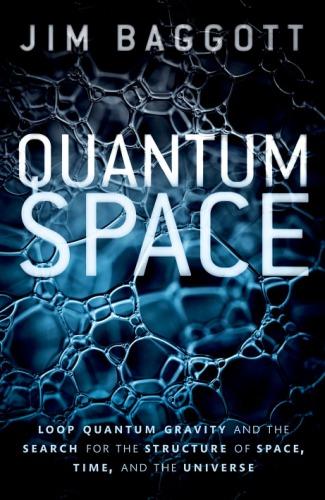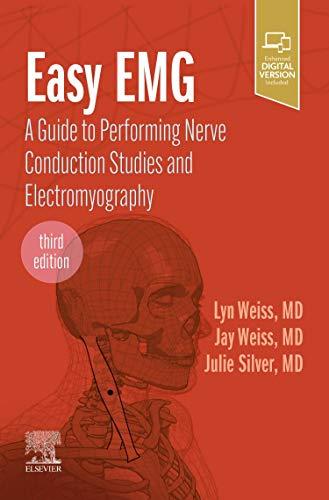CHAPTER II.
HIS PARENTAGE AND EARLY LIFE SCHOOL DAYS EMPLOYED
BY
JAMES GORDON BENNETT APPRENTICED
B. CREAMER DAVID
C.
BRODERICK
TO JACOB
KELLY, CAPTAIN OF EMMET GUARDS ATHLETIC SPORTS HIS FONDNESS FOR PRIVATE THEATRICALS RELIGIOUS STRIFE A BATTLE AT THE POLLS KELLY AS LEADER THE KNOWNOTHING PARTY
John Kelly was born in the city of New York, April 20, 1822. The home of his parents and spot of his nativity was in Hester Street near Mott, in the old Sixth, afterwards changed into the Fourteenth Ward, famous for its politicians. He springs from that stalwart race of men who have played so conspicuous a part in the history of the United States—Tyrone County Irishmen. From Tyrone County came Richard Montgomery, whom Bancroft places second only to Washington as the military genius of the Revolutionary War; thence also came Alexander Porter, the illustrious Louisiana statesman, and one of the great lights of the United States Senate in its palmiest days. Archbishop Hughes, who left his impress on the age in which he lived as one of its most remarkable men, and General James Shields, one of the heroes of two American wars, who enjoyed the unprecedented distinction of having been elected to the United States Senate at various times by three great States of the Union, were both emigrants from Tyrone County, Ireland. Out of this Milesian hive, seeking his fortunes in the New World in the early part of the present century, came Hugh Kelly, father of the subject of this memoir. He married Sarah Donnelly, of County Fermanagh, a small county adjoining Tyrone. The marriage took place in Ireland. There were seven children born to the parents, of whom John was the fourth. The others were five daughters and a son, the last named after the father, Hugh. Old New Yorkers, who were acquainted with the mother of John Kelly, have informed the writer of this memoir that she was a woman of remarkable force of character, a devout Christian, and a mother who brought up her children in the love and
fear of God. The children were all vivacious, and very communicative among themselves in the family circle, with the exception of John, who was quiet and thoughtful, and a better listener than talker. On one occasion a neighbor paid a visit to the Kellys, and brought news of an excursion, a pic-nic, or some such affair, that pleased and greatly excited the little ones, each of whom, save John, had something to say about it. At length the neighbor looked over at John, who had remained a silent listener, and exclaimed, “Look at John there, with his big head, taking it all in, and not saying a word.” “Oh, yes,” said the mother, “that is his way; he thinks a great deal more than he talks, but be sure he is not dumb.” A New York newspaper once cynically characterized him as an ox, but the dumb ox, to use the figure of Albertus Magnus, has given a bellow which has been heard round the world. The devotion of Mrs. Kelly to her elder son was peculiarly tender. At one time, when he was a small boy, he had to cross the East River daily. The mother would often accompany him to the boat in the morning, and always went to meet him on his return in the afternoon. Other boys going and returning at the same time observed that young Kelly’s mother never failed to be at the landing in the afternoon to accompany her son home. The mischievous boys sometimes cracked jokes at his expense, and teased him about his mother’s apron strings. He stood the bantering well enough for a time, but at length grew tired of it. One of the tallest and strongest of the boys hearing that Kelly had threatened to thrash the next fellow that annoyed him on the subject, took it into his head to try his mettle. “Say, Kelly,” exclaimed this one, “how’s your mother? Boys, he’s got a good mother, sure. She won’t let him go running about the streets with the gang for fear he might learn something wicked, but comes for him and takes her little boy home every night. Come along, Johnny, and be tucked in your little bed. Bah!” A flushed face and clenched fist told that Kelly would stand no more raillery of that sort. A smart battle took place on the spot between the two youngsters, and ended in the discomfiture of the larger boy. Kelly’s victory made him a favorite among his companions, and they all soon came to look upon him as a sort of leader, although he would not loiter with the crowd at street corners of evenings, nor haunt the purlieus of the city where youth loses its
innocence, and flaunting vice slopes the way to ruin. Such a mother is a guardian angel to her children, and Mrs. Kelly’s afternoon escort to her son provoked no more jibes at the expense of the latter. This incident affords an insight into the methods of his boyhood, and shows how, under the fostering hand of his mother, the character of the future man was moulded. The American sin of cursing and swearing is first picked up by children running idly about the streets into all sorts of company. John Kelly was never addicted to this bad habit, and it may be doubted whether his most intimate friend of today ever heard him utter a profane oath. The Psalmist’s aspiration to walk soberly and chastely in the day before the Divine Face should be the aim of the rising generation. With that object in view children should be kept out of temptation in the pitfalls of a great city. After awhile, when the habits of a promising youth are formed on the right side, temptation assails him in vain, and whether it be from the cot of poverty or the mansion of wealth, a hero steps forth for life’s battle, who may be depended upon to make his way, and render a good account of himself.
In the case of young Kelly, it was from the cot of poverty he emerged. His father’s and mother’s business of a small retail grocery store afforded the family a modest but comfortable living. But while John was still a small boy of eight years his father died, and the widow and her elder son had to become the bread-winners—the former managing the store, and the latter, when about ten years old, going out in quest of employment. John had attended for some two or three years the parochial school attached to old St. Patrick’s Cathedral in Mott Street. Now he had to give up the school and go to work. It was a sore trial to him, for he was ambitious of book learning, and the dream of his life was to get a good education. But he started out with a brave resolution to seek employment. For a long time the search was tedious and unsuccessful. He had to take many surly replies from ill-bred people, and often went home tired at night after a fruitless day’s rounds, to begin the work over again in the morning. But he told his disappointments to no one, unless indeed to whisper them to the fond mother whose strong heart went out in such sympathy with his own, and whose sound practical sense helped him to form some new plan for the morrow. It is probable that
the lesson he learned then of “man’s inhumanity to man” during his first humble trials to make his way in life was never forgotten. When the day came for himself to mount to power, and to be called upon by many young and old seeking a friendly hand to help them to their feet, John Kelly proved to be a real philanthropist, uttering the gentle word, cheering the drooping heart by the overflowing generosity and charity of his own, and never allowing a human being to pass out of his doorway without feeling better and stronger for having carried his sorrow to him.
One day John went into the Herald office, then in its infancy, and asked James Gordon Bennett whether he wanted an office boy. Mr. Bennett scanned the boy over from head to foot without making a reply. Seemingly satisfied with the first scrutiny, he began a conversation with him, which continued for five or ten minutes. There was no better judge of character than the elder Bennett, and he was always quick in making a decision. “Come in here, my lad, and take off your hat and get to work,” said he, and John Kelly found himself an employé forthwith of the great editor. No two men have ever made their mark more thoroughly in the metropolis of the United States than James Gordon Bennett and John Kelly. Did the editor descry in that first glance at the boy the latent powers which ultimately have made Kelly so distinguished? “It is said,” remarked the editor of the Utica Observer, in a notice of Mr. John Kelly in that paper, “that old James Gordon Bennett took a great fancy to him. This speaks much in his praise, for the founder of the Herald was quick to see the possibilities of greatness or usefulness in an undeveloped youth.”[1]
Evening schools then but recently had been established in New York, and the youth was quick to avail himself of the advantages they afforded to boys in his situation for acquiring an education. He became a regular attendant at one of those night schools, was a diligent and close student, and, like the great Sir Thomas More, “rather greedily devoured than leisurely chewed his grammar rules.” The editor of the Utica Observer, one of Mr. Kelly’s most energetic opponents and Governor Robinson’s ablest advocate in the press, during the celebrated New York gubernatorial struggle of 1879,
declared of Kelly, in the heat of that campaign, and in an article containing an attack upon him, “that there is a great deal to admire in the character of John Kelly.” Of his education the editor added: “His thirst for learning had not been satisfied in his youth, and he proceeded by study to enlarge the scope of his understanding. He became a good scholar in French, as well as in English, and for twenty years he has devoted several hours of every day to the pursuit of literature and science. If anybody has imbibed the impression that Mr. Kelly is an ignorant man, he does not want to confront that delusion with an actual examination of Mr Kelly’s acquirements. A Utica man who met him once in the presence of Prof. Bonamy Price, of Oxford, says that he held his own in a discussion on Political Economy with England’s foremost teacher of that science.”[2] He proved to be an excellent office-boy, was always at his post, and was as punctual as the clock in fulfilling engagements. He became a great favorite with Mr. Bennett, and when, at length, as he grew older he resolved to give up his employment in the Herald office in order to learn some regular business or trade, Mr. Bennett tried to dissuade him from his purpose, and offered additional compensation as an inducement for him to remain. But while greatly appreciating his employer’s kindness, young Kelly replied that his mother and her large family mainly looked to him, the elder brother, for support, and that it had always been his intention to go into business on his own account. The time had now come to carry out that purpose. Mr. Bennett, in his brusque but kindly Scotch voice, gave John some parting advice and wished him well, predicting that success awaited him in his future career. The boy now apprenticed himself to Jacob B. Creamer, a grate-setter and soap-stone cutter at 346 Broome Street, then on the corner of Broome and Elizabeth, and speedily learned that trade. He had grown to be a large boy, with the thews and sinews of a young Hercules, and although he was not quarrelsome, he was high spirited and courageous, and would brook no insult from anyone. In the factory where he worked there was another young man, three or four years older than himself, a dark complexioned powerful fellow, of a domineering temper, with a reputation for fisticuffs. One day this person got angry with Kelly and struck him. Kelly returned the blow.
The men in the establishment separated them, but the blood of both was up, and a fight was agreed upon between them as soon as the bell should be rung for dinner. They went into the factory yard and prepared for battle. The hands about the establishment finding the boys meant to fight, undertook to secure fair play in the encounter. Kelly was much shorter than his antagonist, and no one supposed he had any chance to win. At it they went pell mell, with a lively interchange of heavy thuds. The older youth fought rapidly, and brought Kelly down several times with furious blows. Fighting was not allowed while either of the boys was on the ground, and in this way matters progressed for fifteen or twenty minutes, Kelly getting the worst of it all the time, but showing great endurance, and urging that no one should interfere. He had made thus far but very little impression on his antagonist. He observed, however, that one of his chance blows had caused the other to wince with pain. From that moment he took all the punishment the larger boy could inflict, and made the battle one of strategy, reserving himself to give a blow in the same place, which he found to be the other’s weak spot. The tide now began to turn, and it soon became evident to the onlookers that the big swarthy fellow was no match either in courage or endurance for Kelly. The latter, selecting the weak spot, laid his antagonist on his back several times by well-directed blows. The last time he fell both his strength and courage collapsed, and he bellowed out crying that he was whipped and would fight no more. One of the men who had witnessed the encounter with the closest attention from beginning to end, and saw that Kelly had won it by superior intelligence, now rushed up to him, and taking his hand exclaimed, “Well Johnny, my boy, you are a born general sure, and you will yet be a great general over men when you grow up to be a man yourself.” A few years ago an aged man entered Mr. Kelly’s crowded office at 117 Nassau street, and sent in his name with the rest. When his turn came he was admitted. “Do you not know me, Mr. Kelly?” said the old man. “No,” was the reply, “I do not recall you.” “Do you remember when you were a boy the fight you had with that big swarthy fellow in Creamer’s factory yard, when one of the men told you you would one day become a great general over men? Well, I was that very man, and didn’t I tell the truth, sir?” Mr. Kelly
remembered the occurrence and his visitor too, immediately, whom he had not seen for many years, and laughed heartily over the reminiscence of his youth as he shook the old man’s hand.
He worked industriously at his new occupation, and is said to have displayed mechanical skill of no mean order. In due time he set up in business for himself, made friends rapidly, and secured an excellent line of custom. He became a prosperous young man, and was remarked upon for sobriety, modesty of deportment and attention to business. It was not long before he found himself able to branch out on a more extensive scale, for his friends were numerous and willing to lend him a helping hand when the needs of his business made it expedient to ask credit. While yet a very young man, his success was sufficiently assured to justify him in establishing a soap-stone and grate factory at 40 Elizabeth street, and he also opened an office where he took business orders, in a frame building on Broome street, next door to the church over which Dr. Maclay at that time presided, and of which Dr. Cohen, in subsequent years, became the pastor. Among his customers were Thomas O’Conor, father of Charles O’Conor, the lawyer; John A. Dix, afterward Governor of New York; Horace F. Clark, and many other influential people. John Kelly had now become a prosperous man. His first care was for the beloved mother who had shaped the days of his youth in the ways he should walk, but who departed this life in the most edifying sentiments of piety when he was quite a young man, scarcely twenty-one years of age. His next care was for his younger brother and five sisters, towards whom he acted as a father, and for whose education and welfare he was now able to provide in a suitable manner. His own early struggles for education had taught him to appreciate it highly in others, and he secured to his brother and sisters advantages which disciplined their youthful years and qualified them for the duties of after life. Later on he took his brother into partnership with him, but that brother and all his sisters, save one, Mrs. Thomas, who lives near Mexico, in Oswego County, New York, died many years ago. Mr. Kelly, as already mentioned, owed to his mother’s care the blessing of right training in his youth, and the consequent formation of his character in the practice of the Christian virtues. An old New Yorker who knew his mother, has told the writer
she was a thorough disciplinarian, and taught her children to love the truth in all things, and that the beginning of wisdom is the fear of the Lord. His mother died before her son’s brilliant success began; she who had equipped him for the battle stayed not to enjoy its triumphs.
At this period of his life John Kelly had not a dream of ever entering upon a political career. In this respect he resembled another distinguished New York statesman, the late Daniel S. Dickinson, who began life as a mechanic, became a woollen manufacturer, and, beyond being an earnest Democrat, passed several years with no inclination whatever for the field of politics. It was true, however, that even from his boyhood John Kelly displayed rare capacity to lead others, and he now found himself, in spite of preoccupation in the manufacturing business, constantly called on by neighbors seeking his advice and instinctively following him. He was once asked by a newspaper reporter if he ever sowed wild oats in his youth. “That may be called a leading question,” he replied; “I was in a gamblinghouse once in my life, but it was on business—not to gamble. And I never was in a house of assignation in my life. I don’t know what the inside of such a house is.” “It is charged against you,” the reporter said, “that you attend church very regularly, and that you do it for effect.” “Well,” Mr. Kelly said, “that’s a queer charge to make against any one. I had a good careful mother who sent me to the Sundayschool regularly. I have been to church regularly ever since. Under such training, no doubt, I ought to be a great deal better Christian than I am. I suppose I have been very wicked sometimes, and yet I can’t recall any time when I have been wilfully bad.”[3]
“During Tweed’s ascendancy in New York politics,” said the well informed Utica editor, in the article already quoted from, “Mr. Kelly retired from Tammany Hall. Between him and Tweed the bitterest hostility always existed. It is pleasant to believe that Kelly’s superior virtue made him distasteful to the burly champion of corruption. But that does not account for their feud. During the glow of his guilty glory, Tweed’s ambition was to secure the endorsement of men of unimpeachable character. By turning back a page in political history, we might show how well he succeeded. But he could not make terms with John Kelly, for Mr Kelly would accept no position but that of
ruler William M. Tweed swore a solemn oath that John Kelly never should control Tammany Hall—and we all know what came of it.”
Shortly before his death, while he was a prisoner in Ludlow Street Jail, Tweed was interviewed by a New York Herald reporter, and gave with undeserved freedom his impressions of the leading men he had known in politics. “Whom,” said the reporter, “do you regard as the most successful city politician of New York in the thirty years of your experience?” “John Kelly,” said Tweed. “He was always a plodder—always saving something and learning something. He stood well with the Church—rather a high class man in the Church— and got his support there. I never did but one thing for him; twenty years ago I helped him beat Walsh for Congress.” “When you came to politics,” asked the reporter, “did you ever remotely entertain the idea of such proportions as the Ring afterwards assumed?” “No,” said Tweed. “The fact is, New York politics were always dishonest— long before my time. There never was a time when you couldn’t buy the Board of Aldermen, except now. If it wasn’t for John Kelly’s severity, you could buy them now.”[4]
The reporter of the World, with an odd sort of unconscious humor in his interview, not unlike Tweed’s commercial valuation of piety as an investment, so naively suggested by the words, “rather a high class man in the Church,” bluntly told Mr. Kelly that it was not only complained against him that he attended Church, but that he aggravated the matter by attending it very regularly. No wonder Kelly should have thought that a “queer charge” to make against him.
An old citizen of New York, acquainted with him from his youth, is authority for the statement that Kelly was as fully a leader of the young men of his neighborhood when he first grew up, as he became of the Tammany Democrats at a later day He was of a social disposition, and while always temperate in his habits, he would go occasionally, after getting through with his day’s work, to the Ivy Green, a famous hostelry in those days in Elm street, kept by Malachi Fallon, who went to California in 1849, and which was afterward kept by John Lord. The Ivy Green, like Stonehall’s in Fulton Street, was a popular gathering place for politicians and their friends. John Clancy, Peter B. Sweeny, Matthew Brennan, David C.
Broderick, and many other active young fellows, who afterwards became prominent in politics, were in the habit of visiting the Ivy Green, and John Kelly would sometimes call there for a chat with the boys. Less frequently, but once in a great while, Kelly and Broderick, the latter being a warm friend of Kelly’s, also dropped in at the Comet, another place of resort of the same kind, kept by Manus Kelly on Mott street, where they would meet the same jolly crowd that frequented the Ivy Green, and whither came quite often the celebrated Tom Hyer, Yankee Sullivan, and other champions of the manly art of self-defence. “But,” said the writer’s informant, “none of these fighting men ever intermeddled with Kelly or Broderick. The best of them would have had his hands full if he had done so.” Poor Broderick, who afterwards became a United States Senator from California, finally fell in a duel in that State.
Young Kelly was very fond of athletic sports. He was a good oarsman, was often on the water, and pulled a shell with the best. There was a crack company called the Emmet Guards in New York, when Kelly was a young man. He was first lieutenant of this company during the captaincy of James McGrath, upon whose death he was elected captain, and being fond of military matters, he brought his company to a high state of efficiency. Captain Kelly retained the command until he was elected Alderman in 1853. The Old Volunteer Fire Department was then in its zenith. He was a member of it, and one of its leading spirits. While he was in the Fire Department an incident occurred which has exercised a restraining influence over him through life. At a fireman’s parade, while he was in line of March, a burly truckman attempted to drive through the ranks. Kelly was near the horses and kept them back. The driver sprang to the ground, and made a furious attack on the young fire laddie. He received in return a blow from Kelly’s fist which ended the battle by rendering the truckman insensible. He was borne to a neighboring doctor’s office, and was resuscitated with much difficulty. For two or three days the truckman was disabled. Kelly, who had acted strictly on the defensive, nevertheless was greatly distressed for his antagonist. He had been unaware of the almost phenomenal force of his own blow, and his tremendous hitting power was first fully revealed to him by the effect of his fist on the truckman. To one
of his intimate friends he declared that he deeply regretted this affair, but that, perhaps, it had served a good purpose, for he was now unalterably resolved never again as long as he lived to strike any man with all his force, no matter what the provocation might be.
His herculean strength and known courage have sometimes been seized upon by opponents for disparaging paragraphs in the newspapers, just as the combativeness of Andrew Jackson, in his earlier days, was often commented upon to his detriment. But as there was nothing mean or domineering in the temper of Jackson, any more than there is in Kelly, only the high and unconquerable spirit that felt “the rapture of the strife,” Old Hickory did not suffer in popular esteem on account of his early scrimmages. In 1828 Dr. James L. Armstrong, one of his old opponents in Tennessee, gathered up and published as a political nosegay a list of nearly one hundred pistol, sword and fist fights in which Jackson had been engaged between the ages of 23 and 60. Jackson replied to this by promising to cudgel Armstrong on sight. The courage of some men is so conspicuous that they are recognized at once as heroes. In his admirable life of Nelson, Southey relates many acts of apparently reckless intrepidity on the part of the hero of Trafalgar; but, as it was with Jackson, so was it with Nelson, his conduct was not the result of real recklessness; it was not the courage of the bull-dog, the maddened bull or the enraged lion, but rather the play of a spirit which rose with the occasion, the exhibition of a will not to be appalled by dangers common natures shrink from. It was such a courage the poet had in view when he made Brutus say—
“Set honor in one eye, and death i’ the other, And I will look on both indifferently.”
On several occasions in his career John Kelly has exhibited this heroic quality. Through his agency, at a stormy political convention in New York, when several of the most notorious partisans of Tweed, while clutching to retain the power which had been wrested from their fallen chief, were beaten at every point, a resort to brute force was threatened, and several of the vilest desperadoes in the city were despatched from the hall to waylay Kelly and take his life as he
passed along the street. Some of his friends divined the purpose of the would-be-assassins, and admonished Mr. Kelly of their movements. A carriage was sent for, and he was urged to get into it and be driven home, in order to avoid the bravos. Augustus Schell, Horace F. Clark, and several other friends tried to persuade him to enter the carriage. Mr. Kelly replied that he generally went home by a certain route, pointing to the street where the thugs were in hiding, and it was his intention to go that way then. If anybody wanted to kill him, the opportunity would be given, as he would neither seek nor avoid such miscreants. “My friends,” he quietly remarked, “if you run away from a dog, he will be very apt to bite you.” He went out of the hall and approached the corner, keeping his eyes steadily fixed on the sinister group gathered there like beasts of prey, passed on, and was not molested. Determined to take his life, but deterred by cowardice when Kelly confronted them, the villains made a plan to secrete themselves in a small unoccupied frame house on Lexington Avenue, between 33d and 34th streets, on the following morning, and to shoot him as he went down town to business. An old man living in the neighborhood, by the merest accident overheard a part of the muttered plot of the conspirators, and saw them early next morning enter the deserted house. He was a friend of Mr. Kelly, and suspected that he was to be attacked. He went out, and meeting Mr. Kelly, told him of his suspicion, and pointed out the house in which the men were concealed. John Kelly crossed the street, and proceeded deliberately to enter the house and room from which the Ring desperadoes in dumb astonishment watched his approach. Thinking they had been betrayed—for it must have flashed upon them that Kelly would not have the madness to do such a thing unless he had assistance at hand—the terrified assassins fled from the rear of the house as he entered at the front. He went into the room they had just quit, and saw four men running through a vacant lot as fast as their legs could carry them into the next street. Alone and absolutely unassisted, save by the cool judgment and unflinching courage which eminently distinguish his character, he adopted this hazardous line of conduct as the most effective way of confounding a gang of murderous ruffians, and stamping out their
cowardly plots. He succeeded. The Ring men beset his path no more.
Those acquainted with John Kelly are aware that there is a humorous side to his character, and that he possesses mimic powers of a high order. It is not generally known, but it is a fact however, that when he first grew up to manhood he was one of the organizers of an Amateur Dramatic Association, which had its headquarters in a hall at the corner of Elm and Canal Streets, and which sent forth several professional actors who afterwards attained eminence on the stage. Charles Place, Samuel Truesdale, Mr. Godwin, John Kelly and other well known citizens of New York were members of this company; and several great tragedies, notably some of the now neglected ones of Shakespeare, were essayed by these aspiring youths. “Many of Mr. Kelly’s friends,” said a writer in September, 1880, in a New York weekly paper called The Hour, “will be surprised to learn that he once, in the character of Macbeth, sturdily challenged Macduff to ‘lay on’; that as the sable-clad Hamlet he was accustomed to win applause as he expressed the wish that his ‘too, too solid flesh would melt’; and that his passionate outbursts as the jealous Moor in ‘Othello’, were wont to bring down the house. Equally astonished will they be to hear that, in the versatility of his genius, he was as much a favorite in ‘Toodles’ and other of Burton’s eccentric comedy parts as in the higher walk of tragedy.”
In Kelly’s younger days religious persecution and hostility to foreigners had begun to be shown in not a few localities. This intolerant spirit, which had lain dormant in America from the days of Washington to the end of Monroe’s administration, broke forth with great fury in several parts of the country after the close of the “era of good feeling.” The fathers of the Republic were liberal men who kept this spirit at a distance. Archbishop Carroll of Baltimore, the friend of Washington, was chosen by a unanimous resolution of Congress, and in compliance with the desire of the clergy and laity of all denominations, to deliver the first anniversary address upon the father of his country after his death. The address was delivered February 22, 1800, and is still preserved. Bishop Cheverus of Boston, afterwards Cardinal Archbishop of Bordeaux, France, was
the warm personal friend of John Adams, and when the Bishop was about to build a church in Boston, the first name on the list of his subscribers was that of President Adams. When Bishop Dubois, the friend of Lafayette, was driven into exile by the French Revolution, he found a place of refuge in Virginia, a home in the private residence of James Monroe, afterwards President, friends in his host and Patrick Henry, and, having no church of his own, a chapel in the capitol at Richmond which the legislature of Virginia placed at his disposal to be used for the offices of religion. These halcyon days of Christian charity and toleration in America were now about to be rudely interrupted. In 1831, the same Dubois, then Bishop of New York, had the mortification to see his church of St. Mary’s, in that city, set on fire by an incendiary and burned down. The first Catholic college in the State of New York was built in the neighborhood of Nyack, on the Hudson, in 1833, by this prelate. Religious bigotry incited by Rev. Dr. Brownlee and other enemies of the Catholics, soon applied the torch to the structure and reduced it to ashes. In 1834 the Ursuline Convent at Charlestown, Massachusetts, was burned and sacked. Two or three years later an anti-Catholic mob formed the design of burning St. Patrick’s Cathedral in New York. A pious churchman, Bishop Dubois was also a man of courage. If the civil authorities would not stay the fury of the mob, he determined to protect himself, and defend his church from destruction. John Kelly, then a well grown youth and a favorite of Bishop Dubois, was selected by him on account of his prudence and extraordinary courage as a sort of aid de-camp to Lawrence Langdon, the leader of a large body of citizens who assembled in the vicinity of the Cathedral for defense. The streets were torn up for a considerable distance; paving stones, wagons and omnibuses were used for barricades; armed men filled the Cathedral, and the walls of the adjoining grave-yard glistened with swords and bayonets. The Bishop enjoined the utmost forbearance upon his people, and gave them positive orders not to begin the assault, and to avoid collision with the mob until the Cathedral might be attacked. Conspicuous in carrying out the orders of the leader, and in directing the movements of the defending party, and maintaining constant communication between Langdon and his followers, was young John Kelly of the
Fourteenth Ward. The mob approached through Broadway, a dense body extending for several blocks, marching in solid line and filling the street from one side to the other. They turned into Prince Street and approached the Cathedral. Kelly carried the order at this moment for the defenders to lie down in the grave-yard and keep perfectly quiet. It was night, and the mob marched on until stopped by the barricades, when they found the whole neighborhood in a state of siege. The ample preparations to receive them disconcerted the church-burners, and the silence of the defending party, of whose presence they had become aware, made the incendiaries wary and apprehensive. They faltered and lost heart, and slunk away in the direction of the Bowery, terrified from their wicked design by the intrepid courage of one old Bishop. They passed along the sidewalk adjoining the burial-ground in lines six deep, with frightful oaths upon their lips, while the men in the city of the dead remained as still and motionless as the tenants of the tombs below, but every finger was on a trigger, and every heart beat high with resolve to defend St. Patrick’s Cathedral and the graves of their fathers from sacrilege and desecration. Driven by cowardly fear from the church, the mob crossed to the Bowery, wrecking the houses of several Irishmen, and the tavern called the Green Dragon, on the way, and finally their fury was let loose on the private residence of Mr. Arthur Tappan, the famous abolitionist, whose windows and doors they broke, and otherwise injured his property. Thus by the prudence of the Cathedral defenders in avoiding collision with the mob, a terrible sacrifice of life was escaped, and young John Kelly, inspired by the counsel of the Bishop and his own coolness and sagacity, played a prominent part in preventing bloodshed and saving the Cathedral.
The prejudice against foreigners, an outgrowth of that aversion which the old Federal party leaders manifested towards Frenchmen, Germans and Irishmen, indeed to all foreigners except Englishmen, continued to increase in bitterness after the close of the “era of good feeling.” A political party was at last organized on a platform of disfranchisement of the Irish and “the Dutch,” the latter being a commonly used misnomer for the Germans. This party took the name of Native Americans. It advocated laws prohibiting Irish and German emigrants from landing on these shores, and practical
denial of the right of suffrage, or of holding office, to those already here. For some years this unwise and unstatesmanlike policy of exclusion and proscription seriously checked the tide of emigration from Europe. Had the Native Americans prevailed, instead of the fifty odd millions of population in the United States to-day, there would have been less than twenty millions, and the wealth and greatness of the country would be diminished in like proportion. Instead of being, perhaps, the greatest nation in the world, the United States would occupy the position of a fourth or fifth-rate power, a little but not much ahead of Canada on the north, and the South American governments on the south.
As the greater number of the foreign population were Roman Catholics, a sectarian element was infused into the new party, and with bigotry superadded to a widespread jealousy of foreigners, the Native American party soon signalized itself by burning down Catholic churches and colleges, and by bloody chance-medleys and deliberate riots with German and Irish adopted citizens. In the year 1844 these disturbances reached a climax. A terrible riot occurred that year in Philadelphia, in which many lives were sacrificed, and the Catholic church of St. Augustine was laid in ashes by the mob. The scenes in that city bore resemblance to some of the godless excesses in Paris during the reign of terror. To be a foreigner was to brave death, to be a Catholic to court martyrdom in free America.
It was at this juncture the Native American party in the city of New York again threatened the destruction of St. Patrick’s Cathedral. The New York Courier and Enquirer, and Evening Express fanned the passions of the people to white heat by appeals to sectarian and race prejudices. But there was a man then at the head of the Catholic Church in New York who possessed many of the qualities for which Andrew Jackson was distinguished. Bishop Hughes belonged to the tribe of the lions. He perceived that it was the favorite policy of the Native Americans to make New York city an anti-foreign stronghold. There, Catholics and adopted citizens were powerful; crushed there, it would be an easy matter to prostrate them everywhere. In the month of May, 1844, the Native American leaders in New York, invited their brethren of Philadelphia, who had most
distinguished themselves in the deplorable events in that city, to visit New York, and to bring with them emblems of the horrible scenes in Kensington at the time of the burning of the church of St. Augustine, the better to fire the New York heart. A delegation of Philadelphians promised to accept the invitation and carry on the emblems. A public reception, and a procession through the streets, were to take place. It became evident that the purpose of this sinister movement was to re-enact in New York the scenes which had just disgraced Philadelphia. Bishop Hughes took decisive action. He admonished Catholics to keep away from public meetings and unusual gatherings of the populace, and, to avoid in a special manner, all disturbers of the peace. That great man, in looking over the city for prudent and conservative persons to aid him in carrying out his policy of forbearance, found no one on whom he more implicitly relied, and who proved more effective in the emergency than John Kelly. Bishop Hughes and John Kelly’s father were natives of the same county and neighborhood in Ireland. Between the Bishop and his fellow countryman’s son a warm friendship existed. They were both endowed with minds of singular originality and power, both natural leaders of men, both possessed a remarkable hold on the respect and affections of the people. Among the Whigs, at this perilous juncture, Bishop Hughes also found several powerful supporters, chief among whom were William H. Seward, Horace Greeley and Thurlow Weed. As the time drew near for the Native American demonstration, popular excitement and fears of a terrible riot increased. Bishop Hughes now called on the Mayor of the city, Robert H. Morris, and advised him not to allow the demonstration to take place. “Are you afraid that some of your churches may be burned?” the Mayor asked. “No, sir, but I am afraid that some of yours will be burned,” the Bishop said; “we can protect our own. I came to warn you for your own good.” “Do you think, Bishop, that your people would attack the procession?” “I do not; but the Native Americans want to provoke a Catholic riot, and if they can do it in no other way, I believe they would not scruple to attack the procession themselves, for the sake of making it appear that the Catholics had assailed them.”
Welcome to our website – the ideal destination for book lovers and knowledge seekers. With a mission to inspire endlessly, we offer a vast collection of books, ranging from classic literary works to specialized publications, self-development books, and children's literature. Each book is a new journey of discovery, expanding knowledge and enriching the soul of the reade
Our website is not just a platform for buying books, but a bridge connecting readers to the timeless values of culture and wisdom. With an elegant, user-friendly interface and an intelligent search system, we are committed to providing a quick and convenient shopping experience. Additionally, our special promotions and home delivery services ensure that you save time and fully enjoy the joy of reading.
Let us accompany you on the journey of exploring knowledge and personal growth!

